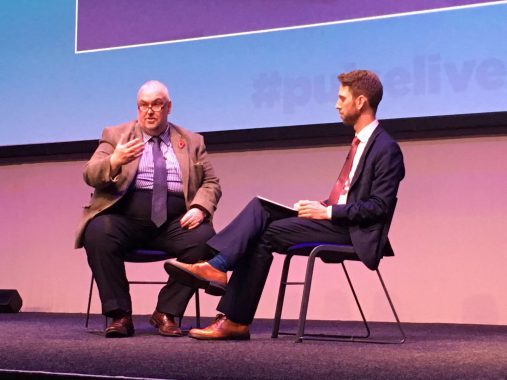NHS Scotland plots urgent measures to support practices at ‘tipping point’

Exclusive The chief executive of NHS Scotland has suggested he will consider urgent measures to support practices on the brink while the proposed new contract is being implemented.
Paul Gray was quizzed at the Pulse Live event in Glasgow today by a GP who has had to hand back her GMS contract, who asked whether there would be sustainable general practice at all by the time the new contract has bedded in.
Mr Gray said that the new contract will help resolve some of the pressures facing general practice, but ‘it will not resolve them all perfectly and certainly not all within six months’.
He added that he would ‘draw from the conversation’ with the GP that the NHS needs to consider measures in the ‘very near term’ for practices at tipping point.
It comes after the chair of the BMA’s GP Committee, Dr Alan McDevitt, told delegates earlier in the day that the new contract will ‘probably not’ lead to big pay rises for GPs, but would address workload issues.
Dr Jocelyn Skaaning, a GP from Ayrshire, told Mr Gray that her practice entered into negotiations with the health board 18 months ago, and was forced to hand back the contract two months ago.
Since the negotiations began 18 months ago, a number of other practices have had to take the same path, she said.
She added: ‘By the time the money filters in, how many practices will have fallen by the wayside, and will general practice in its current form be sustainable at all?’
Mr Gray said that many practices are facing similar pressures. He added: ‘I believe the new contract will do what it can to resolve some of the issues you describe. It will not resolve them all perfectly and certainly not all within six months. But the investment we are talking about is not all waiting until 2020, it is starting now.’
Despite this, he added: ‘I also wonder if there is something I need to draw from this conversation about the kinds of conversation we need to have with general practice as the new contract is implemented about what we should be doing in the very near term for practices who may be at that tipping point.’
Mr Gray used the example of a practice in Aberdeen that had to take over the patient list of a neighbouring practice that had had to close.
He added: ‘While we tend to approach general practice on a health board by health board basis, there are some things we should think about nationally on what steps we need to sustain general practice through a period of transition so we don’t have… practices who find their situation is not sustainable.’
Dr McDevitt had earlier told delegates that ‘you’re not going to vote for this contract because it becomes with a pay rise’.
Among the detail announced so far includes a wider healthcare team taking over some jobs traditionally done by the GP, including some chronic disease management, routine checks, and drug monitoring.
GPs will have access to NHS-run services including prescribing and treatment room services to reduce their workload.
The BMA will poll the profession on the new contract after a special LMCs conference on 1 December.
Pulse July survey
Take our July 2025 survey to potentially win £1.000 worth of tokens











